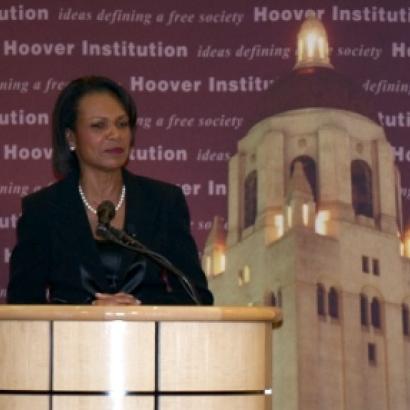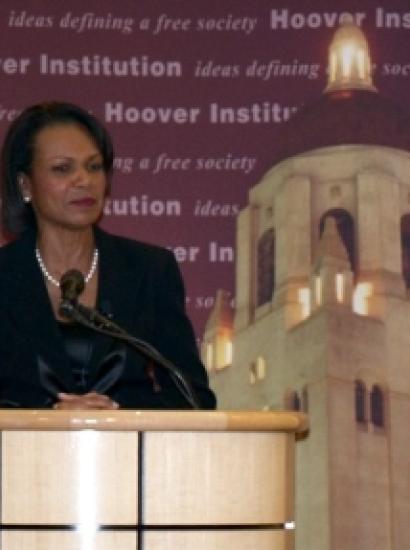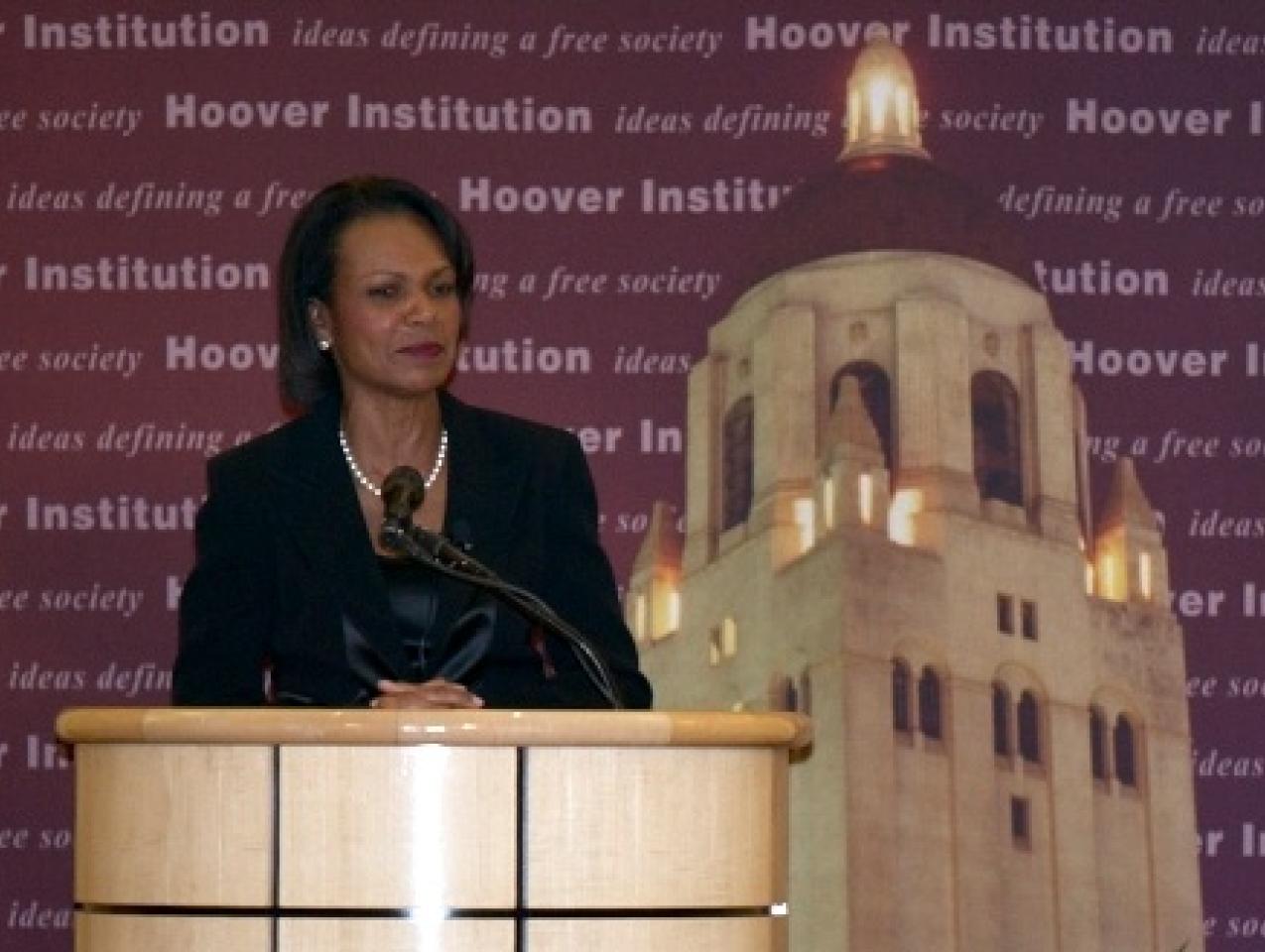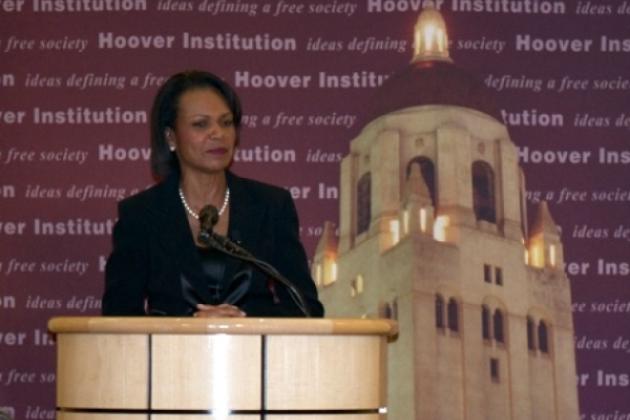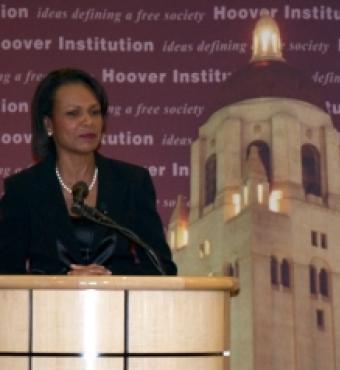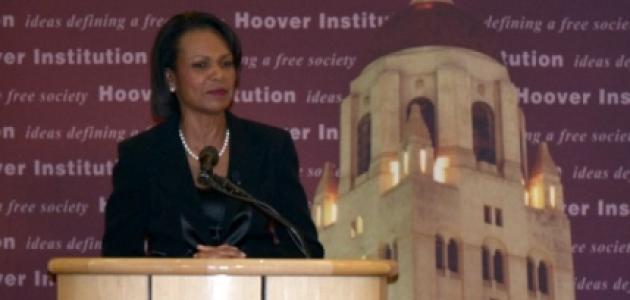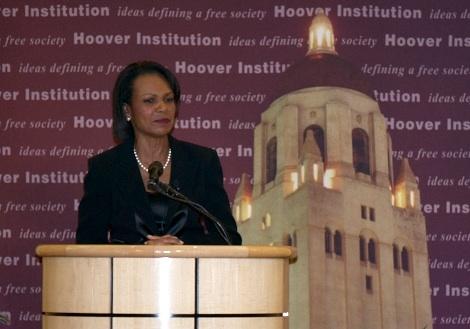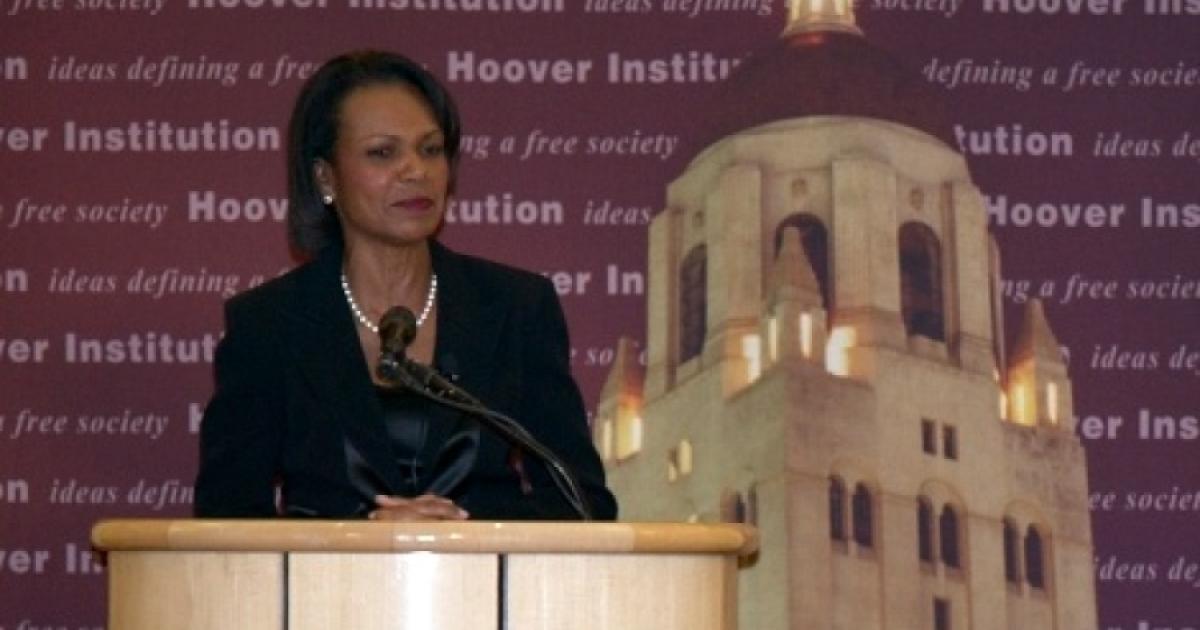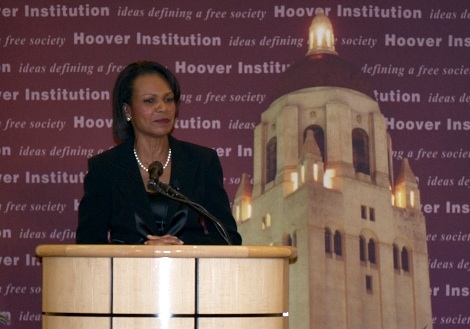
STANFORD—“The individual spirit is an extraordinary thing; it can and it will triumph, but it triumphs most in freedom,” said Condoleezza Rice, the Thomas and Barbara Stephenson Senior Fellow on Public Policy at the Hoover Institution. Rice spoke on family, civil rights, and her role as secretary of state at the Hoover Institution’s October retreat.
Rice, who is also a professor of political economy in the Stanford Graduate School of Business and a professor of political science at Stanford University, was greeted with a standing ovation when she took the podium at the dinner on Monday, October 18.
In her before-dinner remarks Rice, who served as the sixty-sixth U.S. secretary of state from January 2005 to 2009, spoke of the upbringing provided by her parents as being instrumental in her achievements. Rice shared stories from her recently published memoir Extraordinary, Ordinary People: A Memoir of Family with the audience, noting that the impetus for the book was a question often put to her, “How did you get to be who you are?” Rice realized, after considering the many successes in her life “that the answer to the question how did I become who I am is you had to know John and Angelina Rice. You had to know my extraordinary, ordinary parents.”
Rice recalled that, during her childhood in the 1950s and 1960s, being black in Birmingham, Alabama, meant you were treated as a second-class citizen; her parents, however, believed “you may not be able to control your circumstances, but you can control your response to the circumstance.” Her parents held her to high standards and inculcated in her the belief that she could grow up to be whatever she wanted.
Her story, Rice believes, says something special about how America progresses: “It progresses, first and foremost, from individuals who really do believe that there are no victims and who find ways, despite their circumstances to overcome them—people like my parents and grandparents.” She observed that it also says that America is a place that values hard work and merit, adding that parents and family who are determined to instill ambition and accomplishment in their children can do so.
Rice also discussed the civil rights movement, which unfolded during her childhood. She noted the power of a legal framework, notably the Civil Rights Act of 1964, to prohibit discrimination. Shortly after it was signed, the Rice family went to a restaurant in which the diners stopped eating when they first entered, but eventually resumed. “They realized,” she said, “that what had not been legal a couple days before was now legal.” Their response reflected the power of the democracy and the Constitution for Rice.
Her upbringing, coupled with the civil rights movements, provided valuable lessons for her, Rice said. She added that her understanding of how democracy developed in America provided her with insights on the development of democracy in other countries and, in turn, influenced her approach as secretary of state in working with them.







